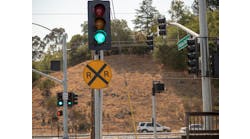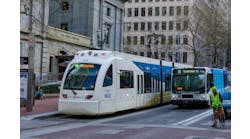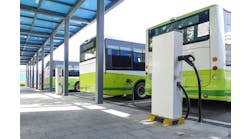The Regional Transit Authority (RTA) of Southeast Michigan unveiled a long-awaited cross-county transit plan yesterday at Lawrence Technological University in Southfield, according to the Detroit Free Press.
Voters in the four-county RTA region, which includes Macomb, Oakland, Washtenaw and Wayne, are expected to vote in November on a 1.2-mill, 20-year property tax millage to fund new bus rapid transit lines, express service to Detroit Metro Airport and commuter rail and improvements to local bus, paratransit and other mobility options. Before the $4.6 billion plan can go to voters, the RTA board needs to formally approve it, most likely at the board’s July 21 meeting.
The plan is an aggressive response to the more than two dozen failed attempts to create a vibrant regional public transportation system in a long underserved area, which invests a fraction of what other regions do.
The RTA’s master plan is designed to address many of the significant gaps in the Detroit area’s regional transportation network. The plan calls for bus rapid transit along Woodward, Gratiot and Michigan avenues, and a commuter rail between Ann Arbor and the Amtrak station in Detroit’s New Center.
Under the plan, 11 cross-county connector routes along major thoroughfares would build on existing SMART and Detroit Department of Transportation (DDOT) networks, but provide buses in some cases every 15 minutes and eliminate the hassle of transfers between DDOT and SMART.
Four commuter express routes—Ann Arbor-Plymouth-Livonia, Canton Express, I-75 and M-59—would provide weekday express rush hour service to and from job centers.
If passed, the millage would start in 2017. It’s expected to raise about $150 million per year and cost the owner of a home assessed at $78,856—the average in southeast Michigan, according to the RTA—about $95 per year. For homes with an assessed value of $100,000 ($200,000 market value), the cost would be about $120 per year.



